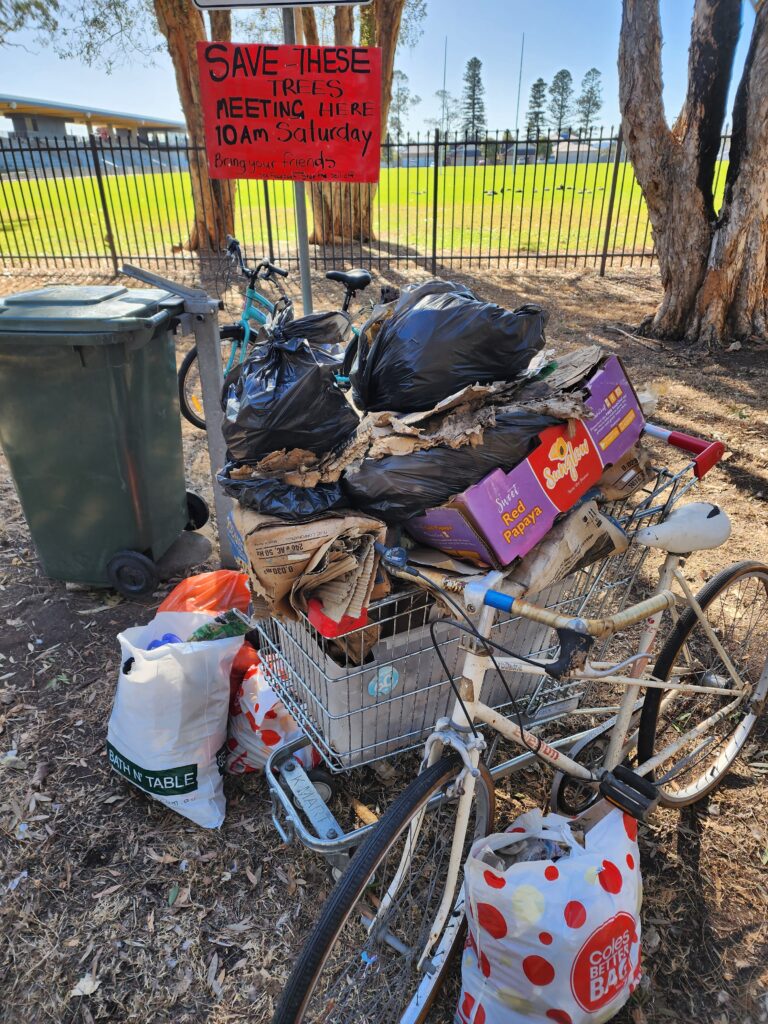Central Council Administrator, Rik Hart, says the mega-council’s debt is coming down and the finances will be in good shape before 15 new councillors are elected in September 2024 but some helpful numbers have gone missing from the monthly reports.

By Jacquelene Pearson
We are proud to announce that Central Coast Administrator, Rik Hart, reads The Point. He told us so during our post-May council meeting interview. He wasn’t 100 per cent happy with our recent reporting on the council’s finances and wanted to correct the public record.
We had made the following points as a preview to a presentation I will be making to a local activist group on Wednesday, June 7:
- Council continues to sell community assets even though they have already sold over $60 million worth of public land which they said was the amount required by their commercial bankers
- Council continues to swim in debt and it is taking on more debt to do a major upgrade of some water infrastructure.
- Our rates and charges have gone up exponentially and services have remained reduced
- The Administrator, as stand-in for an elected council of 15 has made substantial delegations of authority to the CEO that take matters of public importance, such as spending millions on master planning an airport, restructuring or even privatising Central Coast’s $4 billion water business and the future of the Gosford waterfront, to name but a few.
- The council’s approach to public consultation is leaving the community in the dark about major issues of public importance.
“Our debt is coming down,” said Mr Hart in response to the above points. According to Council’s monthly financial report for April, which formed part of the May Agenda papers: “External borrowings as of 30 April 2023 were $293.7M.”
The interim administrator, Dick Persson, had reported in 2020 that the amount of debt inherited by Central Coast Council from the former Gosford City and Wyong Shire Councils was approximately $300 million.
Mr Hart said the April $294 million debt included “the $100 million of emergency debt that I took out as CEO.”
He said that in October 2020 the total debt was approximately $350 million and around $200 million of restricted funds that “had been unlawfully spent”.
“Dick [Persson] added those two together and called it a debt of $565 million; that is what Dick did because the State Government said we had to repay that unlawful use of funds,” Mr Hart said.
He said the emergency loans of $50 million that the councillors had commenced negotiating prior to their suspension and another $100 million negotiated by Mr Hart as Acting CEO and Natalia Cowley as then CFO “gave us working capital so we could continue to operate the business and have the money to pay the severances and entitlements”.
“Now we are down to $289 million, from $565 million,” he said.
“We have actually done a big change around, I am hoping by the time councillors come back in that the debt for the council side will be $100 million,” he said.
Mr Hart explained that it is reasonable to borrow money to invest in intergenerational infrastructure such as major water infrastructure upgrades. That is like borrowing to buy a house. Whereas other debt is less beneficial, more like credit card debt.
“If you take total debt, because we are going to be adding to that with water and sewer, that will probably be increasing but the bad debt is going to be decreasing and what I estimate is the bad debt is going to be in the order of somewhere between $200 and $250 million which is under half what we started with two years ago.
“When you think about the fact we have repaid well over $¼ billion worth of debt it is massive,” he said.
“All water and sewer has done is recover what was taken away by IPART when they reduced what we could charge by $39m, IPART effectively gave us back that money,” Mr Hart said.
The Administrator also refuted The Point’s statement that rates have gone up exponentially.
“Our rates went up 13 per cent plus the rate cap,” Mr Hart said.
“Almost all the time people look at their valuations. Your property of course has gone up but so has everybody elses, but by different amounts, the only revenue increase IPART allows us is 3.8 per cent so our rates revenue has only gone up by $7 millionj for the next financial year.
“Now what you pay is totally dependent on how the rest of the Central Coast has performed because the valuations are just used as a proxy to determine what rate payers pay.
“On average property values on the Central Coast went up by 74 per cent so if your property went up by less than 74 per cent, you will probably end up paying less rates but if your property has gone up by more than 74 per cent then your rates will go up.”
Mr Hart said the good news was his relationships with the local MPs were strong. He said Minister for the Central Coast, Mr David Harris, was organising for Mr Hart to meet the new Minister for Local Government, Ron Hoenig “to get an understanding of how councils are in a dire position. There has to be something fundamentally wrong when well financed councils like Hornsby are going for rate increases of 30 per cent.”
No privatisation
“We have never, ever talked about privatising the water business,” Mr Hart said in response to another of our statements. What I have talked about is corporatising. For example, the Art House Wyong is corporatised, but it is fully included and of course with the current government they have a very serious position against privatisation.
“If you were to privatise water and sewer then the first impact you would have is how do you explain to the rate payers a $2 billion loss, the reason being it could only be sold to a Sydney Water or a Hunter Water and they will only pay the Rateable Asset Base which is $1 ¼ billion but in our books it is valued at $4 billion. We would have to record a paper loss so that kills it dead.
“There is no question of privatising but corporatising is the way we might look at it.”
He also wanted to clarify that the review of the water business was under his control.
“I am actually the one running it. I met with David Harris last week and others, and I am organising a meeting with the Minister for Water and I can assure you 100 per cent there is absolutely no talk of privatisation in any way.
He said: “100 per cent it will be explained to the public but my first endeavour is actually to get people doing something.
We cannot live in a world at the moment where we get two different inflation rates and we are the only organisation in this category.
“We are under the Water Management Act which is the same act that runs Sydney and Hunter Water but we are also under the Local Government Act.
“We have to be operated in a different way. We live in this twilight world. It should have been foreseen years ago and it wasn’t until I came in here and we worked it out. This is another critical thing to understand, in water and sewer IPART look at that differently to the way they look at a general council.
“They say water and sewer is a long term investment and you should have intergenerational equity so basically they tell councils to borrow the money to pay for water and sewer. And what they calculate, when they determine fees and charges for water and sewer, they say ‘we will allow you in your fees and charges to include interest and payment on that debt’ so water and sewer operates as a little island out there,” Mr Hart said.
More questions
However, in spite of Mr Hart’s assurances, The Point has more questions to ask about the Central Coast Council’s current financial health.
As reported by Merilyn Vale in Central Coast Council Watch, the agenda for the May council meeting was the second in a row missing financial data on loan repayments.
As per Merilyn’s post, “Pre-existing unrestricted cash reserves in each fund need to at least cover the net loan principal repayments of that fund for the same year. But for the last two months, we have not seen that ratio”.
A note in the report explains: “Loan Principal Repayments (This ratio is pending review. It is proposed to align ratios within the Financial Strategy to the mandatory ratios reported in the Annual Financial Statements.)”
We await the June Council Agenda to check whether the net loan principal payments ratio will be included.
The May report also showed the Unrestricted Current Ratio as 1.4x in the red. The report said “this is due to the $100 million emergency loan being transferred from non-current liability to current liability as it is due to be repaid in December 2023.”
The water fund is 55 per cent in the red “due to recent revaluation of indexation of the water fund asset base, the depreciation budget has exceeded the capex budget which is initially set by IPART”.
Does this mean Council’s assets and ability to deliver services are degrading faster than they can be replaced, maintained or even operated at half capacity for the Water business?
It is difficult to interpret how the emergency loans are impacting on services and capital expenditure, given that the lender required council to limit its capital expenditure in line with depreciation as a condition of granting the loan.
It is also worth noting that the NSW Solicitor General issued advice that the $200 million missing from restricted funds may not have been taken unlawfully due to that accounting change that was brushed over in 2016 and not really explained in the Public Inquiry.
The Point intends to look more deeply at Central Coast Council’s finances. If we cannot have a local government election until September 2024, we can at least attempt to hold the current administration to account in the hope the next 15 councillors will not encounter as many land mines as the previous 15.


